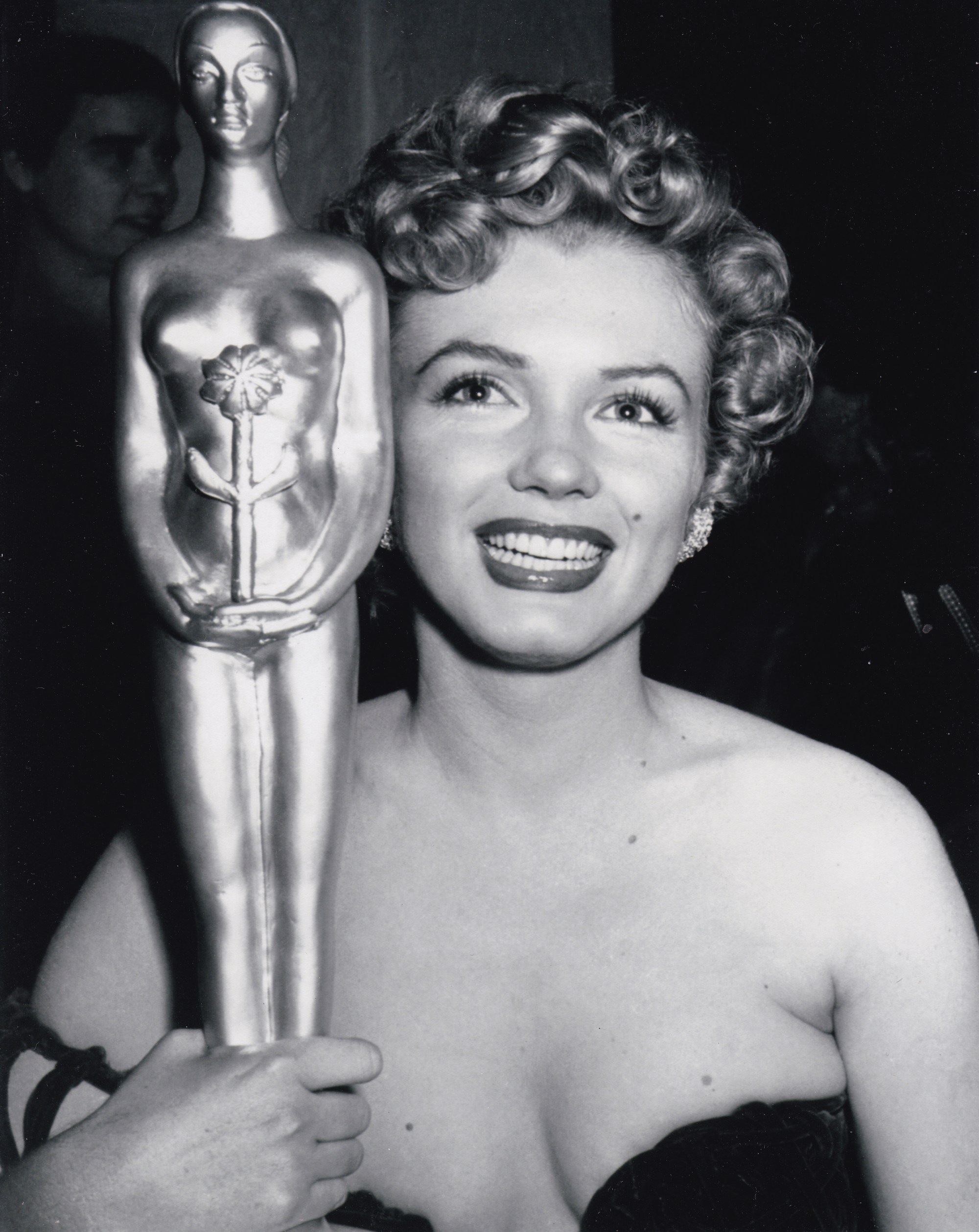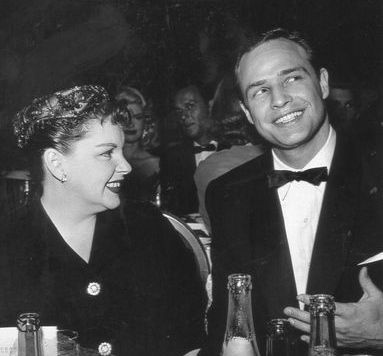
- Golden Globe Awards
Eight Decades Of Golden Globes Part 2: The 50s
It is January 22nd, 1954 at the Club del Mar in Santa Monica and Marilyn Monroe, radiant in a tight gown with plunging neckline, is all smiles as she holds her cumbersome Henrietta Award statuette (named after the then-president Henry Gris). She has been voted the World Film Favorite at the 11th Golden Globes.
That same evening Audrey Hepburn wins for her first major role, in Roman Holiday, and Grace Kelly is named best supporting actress for her part in Mogambo. All three are on the eve of super-stardom and redefining the codes of femininity to become enduring symbols of Hollywood glamor. On the men’s side, a handful of rebels from the Actor’s Studio are determined to break the rules. Montgomery Clift, James DeanMarlon Brando. who did not win for his breakthrough performance in A Streetcar Named Desire. He will, the following year, for On the Waterfront.
It is now smooth sailing at the newly renamed HFPA, after a schism between members in 1950 caused them to split into two groups: the Hollywood Foreign Correspondents and the Foreign Press Association. Unity is the new motto for the association, which starts to become more involved in philanthropy. Since 1952, two categories are bestowed for Best Film: Drama and Comedy or Musical. The following year the Cecil B deMille Award is instituted as a way to honor Hollywood legends. The first is awarded to its namesakeWalt Disney. A new venue has to be found for the ceremony. The Cocoanut Grove of the Ambassador Hotel will serve as an appropriately glitzy setting for a few years.
The HFPA members are amongst the first to really take television seriously, acknowledging for the first time in 1956 the increasing influence of the medium with its own distinct Golden Globes Awards. There will be no turning back, as more categories are soon added: in 1952, the HFPA launched what would become a traditon – two best motion pictures, one drama and one comedy or musical.

But if the studio system is starting to crumble in part because of the impact of the small screen and needs to adapt to survive or die (the theme of Stanley Donen’s masterpiece Singin’ in the Rain), movies in the fifties have never been so magnificently flamboyant. Musicals, Westerns, peplums in glorious Panavision, Cinemascope and Technicolor but also dark dramas reflecting the revolting witch hunts of the McCarthy era. Filmmakers have rarely been so inspired. Stars are never so glamorous. Iconoclasts like Kirk Douglas (who championed Stanley Kubrick), Burt Lancaster and others start to form their own production companies. Marilyn will also do so. In 1960, she will get the Best Actress Golden Globe for Some Like It Hot, one of the best comedies of all time.
Marilyn Monroe. James Dean. Broken angels, mythical and mystical icons that the pioneers of the HFPA had the incredible privilege to rub shoulders with as many photographs can attest …
This kaleidoscopic look back at the second decade of Golden Globes shows the knack of the group for keeping in synch, rarely missing a chance to honor the most relevant films and actors of the time and becoming, along the way, an unofficial barometer for the Academy Awards. A few random titles and names tell it all: Sunset Boulevard, East of Eden, All About Eve, The Apartment, Gigi, Spartacus, Singin’ in the Rain. Shirley MacLaine, Kim Novak,Spencer Tracy, Dorothy Dandridge, Ernest Borgnine, Judy Garland, Jack Lemmon, Gregory Peck, David Niven …
From the very beginning, the HFPA felt that foreign markets were of vital significance to Hollywood. Imports are in – Anna Magnani, Anita Ekberg. Fun fact – in 1960, the Golden Globe for best actress goes to Elizabeth Taylor for Suddenly, Last Summer and Simone Signoret wins an Oscar for Room at the Top.
A landmark: February 22, 1958. For the first time, the ceremony is telecast live, locally. Probably quite inebriated and maybe slightly bored by the formality of it all, or simply in the mood for celebration, a group of tuxedoed men unexpectedly storms the stage of the Cocoanut Grove. Whiskeys and cigarettes on hand: The Rat Pack. Frank Sinatra (winner for Pal Joey), Dean Martin, Peter Lawford, and Sammy Davis Jr.

